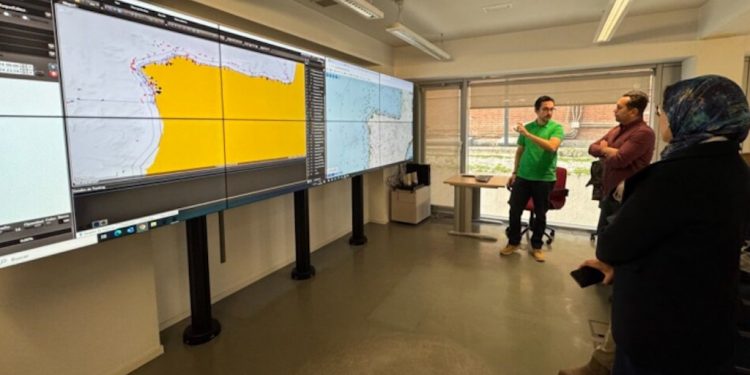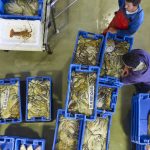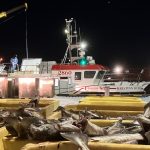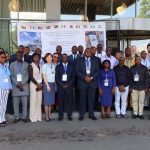As part of the GEF-funded fisheries and ecosystem-based management for the blue economy of the Mediterranean (FishEBM MED) project, the General Fisheries Commission for the Mediterranean (GFCM) has undertaken initiatives that aim to thwart IUU fishing at every level.
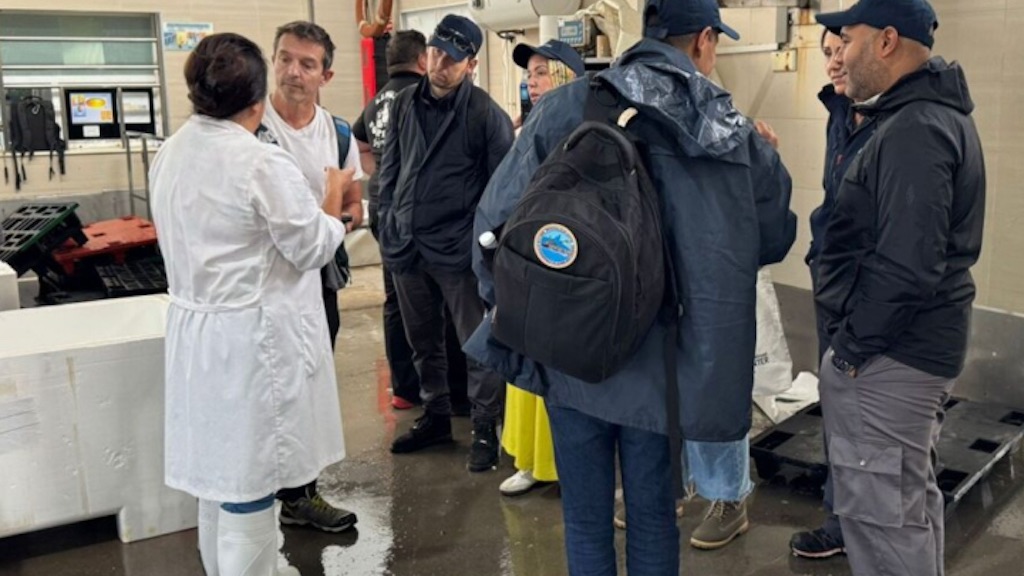
These include strengthening national legislation to align with sustainable fisheries management goals and offering specialised training for fisheries inspectors to enhance enforcement capacity. Officials from eight GFCM countries convened recently in Spain for training on monitoring, control and surveillance (MCS) measures and innovative technologies.
This aims to boost technical capacities and foster regional collaboration. This five-day initiative, organized by the GFCM with the financial support of the Government of Spain and the GEF, brought together inspectors from Albania, Algeria, Egypt, Montenegro, Morocco, Libya, Tunisia and Türkiye. The programme included training sessions and field visits designed to improve their monitoring, control, and surveillance (MCS) capabilities.
The event underscored the critical role of capacity development and the effective implementation of international tools to combat IUU fishing. Training sessions focused on MCS measures and innovative technologies, fostering the transfer of knowledge and development of practical skills to advance the objectives of the GFCM 2030 Strategy and promote a culture of compliance across the Mediterranean.
‘I am very pleased with the training and its outcomes, which have provided me with valuable knowledge. I was introduced to innovative technologies, such as VMS and drones, which were quite new to me. In terms of potential benefits for my country, I believe that using short-range drones for inspections is a feasible and effective option. During the training, we tested the drones at the port, and incorporating this approach into the inspection process has the potential to significantly improve the results,’ commented a participant from Libya.

This gathering in Spain also served as a pivotal opportunity to discuss the GFCM’s joint inspection schemes, which are a voluntary tool relying not only on technical understanding but also on robust partnerships between neighbouring countries. This initiative equipps inspectors with the means to coordinate their actions, share information and data, and effectively implement GFCM decisions, ultimately furthering the objective of the FishEBM MED project to enhance the capacity of countries to manage fisheries in the region.
Given the transboundary nature of many marine resources, the success of MCS efforts is highly dependent on collaborative actions that are essential to ensuring the consistent application of inspection measures, such as fishing logbook reviews, catch certifications and mesh size measurements. Effective inspections deter violations, levelling the playing field in the fight against IUU fishing in the Mediterranean and beyond.
‘This was the first time I attended such training, and it was a truly valuable experience. We all gained new skills, such as learning how to measure nets and operate drones. Montenegro is a small country, with only 20 fishers operating vessels over 15 metres in length. Our daily work is closely related to what we observed during the training. Sharing experiences and visiting ports and facilities is essential for professional growth and development,’ stated a participant from Montenegro.
Thanks to this training, inspectors are now better prepared to use th elatest technology, including advanced vessel tracking systems, sales notes and declaration documents, real-time data reporting, and enhanced surveillance techniques. These kinds of activities under the FishEBM MED project enable the GFCM to continue improving fisheries management by integrating new technologies and strengthening regional compliance mechanisms.

